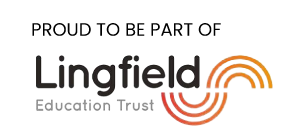Here at Handale, we are passionate about maths and for the high quality teaching and learning of mathematics.
Introduction
We understand that our learners come from a wide variety of backgrounds with varying exposure to mathematical concepts and practical experience. As a result, they require robust and clear progression through mathematical concepts and support with learning. The aim of our Maths teaching is to deliver the core aspects of the National Curriculum – both in the mathematics lessons and across the curriculum as a whole. Our children will be taught to be confident, successful and proficient mathematicians, who can apply their Maths to other contexts and situations. We want our children to leave Primary school ‘Secondary ready’, with excellent foundations for future learning.
Every day, your child takes part in a variety of maths learning opportunities.
Our maths lessons are carefully designed to ensure that every child achieves well and is challenged to think critically about their learning. We also do our best to engage our pupils through stimulating games, fun challenges and thought-provoking activities which relate to your child’s everyday life.
We believe that every child can succeed in maths and we aim to instil this belief in the children themselves.
Many parents will find that the way maths is taught now is very different from their own experience. If there are aspects of maths you would like to know more about, please discuss these with the class teacher.
WE INTEND:
- To foster a passion for mathematics, developing an understanding of the importance of being numerically literate and how maths connects to the world around them. For every single pupil to believe that they can succeed in mathematics.
- For all pupils to be able to articulate their learning confidently using correct mathematical language.
- For all pupils to master the skills and concepts expected of them in order that they are ready for the next stage in their journey.
IMPLEMENTATION
- High expectations for all pupils, including those with SEND
- Planning for small steps progression
- Use of the CPA approach in order to embed concepts
- Structured practice of skills to develop fluency
- Development and use of correct mathematical language to develop mathematical reasoning
- High quality questioning to embed and secure understanding
- Bespoke support and planning in order to meet individual needs including:
- Differentiation and scaffolding
- Small group teaching
- Opportunities for pre and post teaching
- Discussions and support from subject leader and SENCo
- Enrichment opportunities including
- Visitors
- Themed days
- Opportunities for cross-curricular learning
Maths Curriculum Sequences
Lingfield Education Trust Maths Scheme
At Handale, we use the Lingfield Education Trust Scheme of Learning to guide our planning, which ensures that our children:
- become fluent in the fundamentals of mathematics, including through varied and frequent practice with increasingly complex problems over time, so that pupils develop conceptual understanding and the ability to recall and apply knowledge rapidly and accurately
- reason mathematically by following a line of enquiry, conjecturing relationships and generalisations, and developing an argument, justification or proof using mathematical language
- can solve problems by applying their mathematics to a variety of routine and non-routine problems with increasing sophistication, including breaking down problems into a series of simpler steps and persevering in seeking solutions
Click here to see an overview of the maths curriculum your children will be learning for each year.
Factual Fluency
Factual Fluency
It is critical that children know the number facts in line with their year group and the maths they are learning. Without secure number facts, learners have to spend too much processing time calculating rather than investigating and practising new concepts. Subsequent years build on that experience.
Factual fluency is the ability to be flexible with numbers. It helps children understand both how our number system works, and how numbers relate to each other. Children who develop factual fluency have a range of mathematical strategies at their disposal. They know when to use them and how to adapt them to meet different situations. Children with poor factual fluency tend to focus on procedure and will rely on methods that they feel secure with. They apply inefficient and immature strategies to calculations and fail to spot links and connections that could get them to the answer more quickly.
At Handale, we use factual fluency from Reception to Year 6, with the hope it develops the speed and fluency of calculation strategies. The systematic and structured approach ensures children develop key visual pathways and learn important number relationships. This leads to a deep understanding of number and number relationships, and to fluency in addition and subtraction facts. The goal is to ensure all children are competent with number when working arithmetically.
Multiplication Tables
The school promotes multiplication tables through practise. All children from Reception work on knowing their tables, all children in school have a log in for Times Table Rockstars and are encouraged to go on this at home and during school time. During assemblies the children are praised for achieving rockstar status and receive a badge and weekly certificates.



